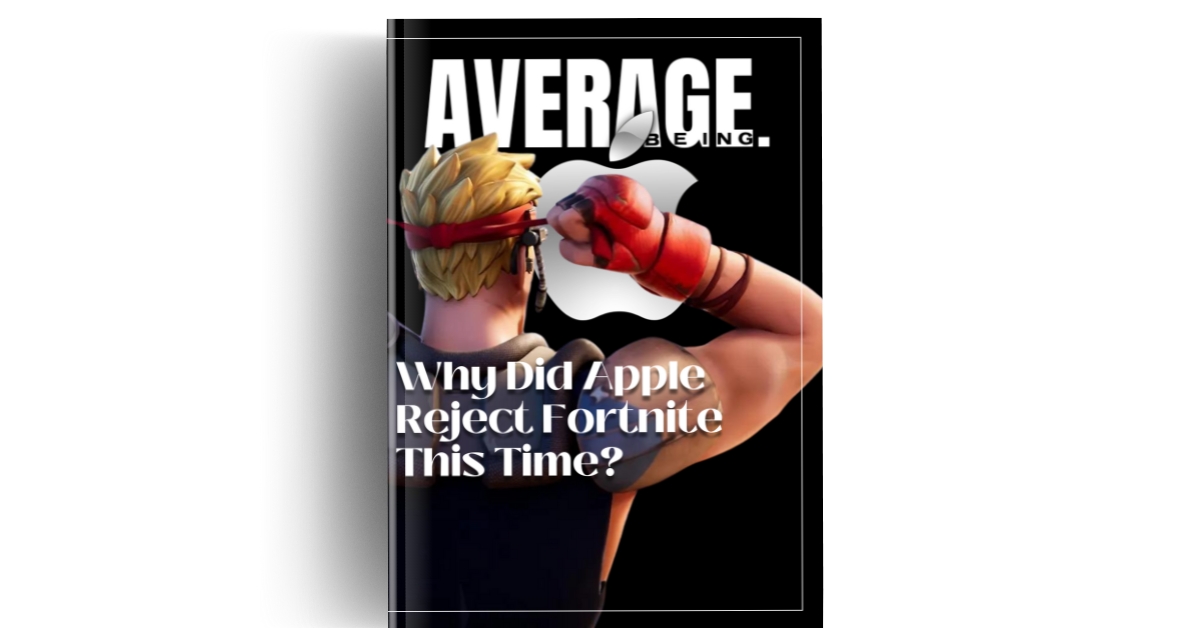Epic Games’ ongoing battle with Apple has hit another petty snag.
The worst kind…
The popular game developer revealed that Apple initially blocked the Epic Games Store and Fortnite from iOS devices earlier this week. The reason?
It might surprise you and even loose respect for the company altogether.
Apple initially rejected the Epic Games Store and Fortnite over button design similarities. Apple claimed Epic’s app store buttons looked too similar to their own sparking backlash and leading to a reversal, but not without causing another stir in their long-standing feud which only adds to their ongoing legal battles.
The clash between Epic Games and Apple is nothing new. Their public feud began in 2020 when Apple removed Fortnite from the App Store after Epic implemented its own payment system, bypassing Apple’s 30% commission. This led to a lawsuit, which has since been dragging through the courts.
But this latest incident takes the cake for pettiness.
Apple’s initial rejection of Epic’s marketplace app was reportedly due to the design and position of Epic’s ‘Install’ and ‘In-app purchases’ buttons. Apple argued these buttons were too similar to its own, which could potentially confuse users.
Epic CEO Tim Sweeney didn’t hold back, calling the rejection “absurd.” He highlighted that Epic was following standard industry practices and regulatory guidelines.
“We are using the same ‘Install’ and ‘In-app purchases’ naming conventions that are used across popular app stores on multiple platforms,” Sweeney said.
“We’re just trying to build a store that mobile users can easily understand.” This sentiment was echoed by the Epic Games Twitter account, which labeled Apple’s actions as “arbitrary and obstructive.”
The backdrop to this dispute is the EU’s new Digital Markets Act (DMA), which aims to prevent tech giants from monopolizing digital markets. Under the DMA, Apple must allow users to download apps from non-Apple-affiliated stores.
Epic argued that Apple’s rejection violated this regulation, adding another layer to their already complicated legal tussle.
The DMA’s implementation is expected to disrupt the power dynamics in the tech industry significantly, with Apple now being forced to comply with more open market practices in Europe.
Despite Apple’s initial resistance, they eventually approved Epic’s submission after facing public criticism and possible regulatory consequences. However, the approval may be temporary.
Apple has hinted that future versions of Epic’s app might still need changes.
“Apple is now telling reporters that this approval is temporary and are demanding we change the buttons in the next version which would make our store less standard and harder to use. We’ll fight this,” Sweeney stated in a follow-up post.
Epic remains defiant, vowing to continue their legal battle to ensure a fair and competitive marketplace.
“Apple has told some press channels that, though they have approved our current EGS (Epic Games Store) iOS App for notarization, they are still demanding Epic change the user interface in a future version. Epic is disputing this,” the company reiterated.
The tension between the two tech giants shows no signs of easing, with each side standing firm in their positions.
As of now, Fortnite fans in the EU can look forward to the game’s return to iOS devices in the next couple of months, with a UK release expected next year. However, there are no current plans to bring back Fortnite and the Epic Games Store to iOS in the US and the rest of the world.
Apple’s policies only require compliance within the EU and UK, thanks to the new laws passed recently.
So, Will Apple and Epic ever find common ground, or will their disputes continue to shape the future of app store dynamics? How do you think this will impact other developers and the broader app marketplace?
Fortnite fans, are you ready to jump back into the game on your iOS devices? What are your thoughts on Apple’s button design objections?
Averagebeing’s Take: Apple prioritizes revenue. Given their dominant position and lack of significant competition, they often secure more favorable terms. In many instances, this involves strict enforcement of their policies, while they might overlook minor similarities like the buttons, if the financial arrangement is beneficial to them.

